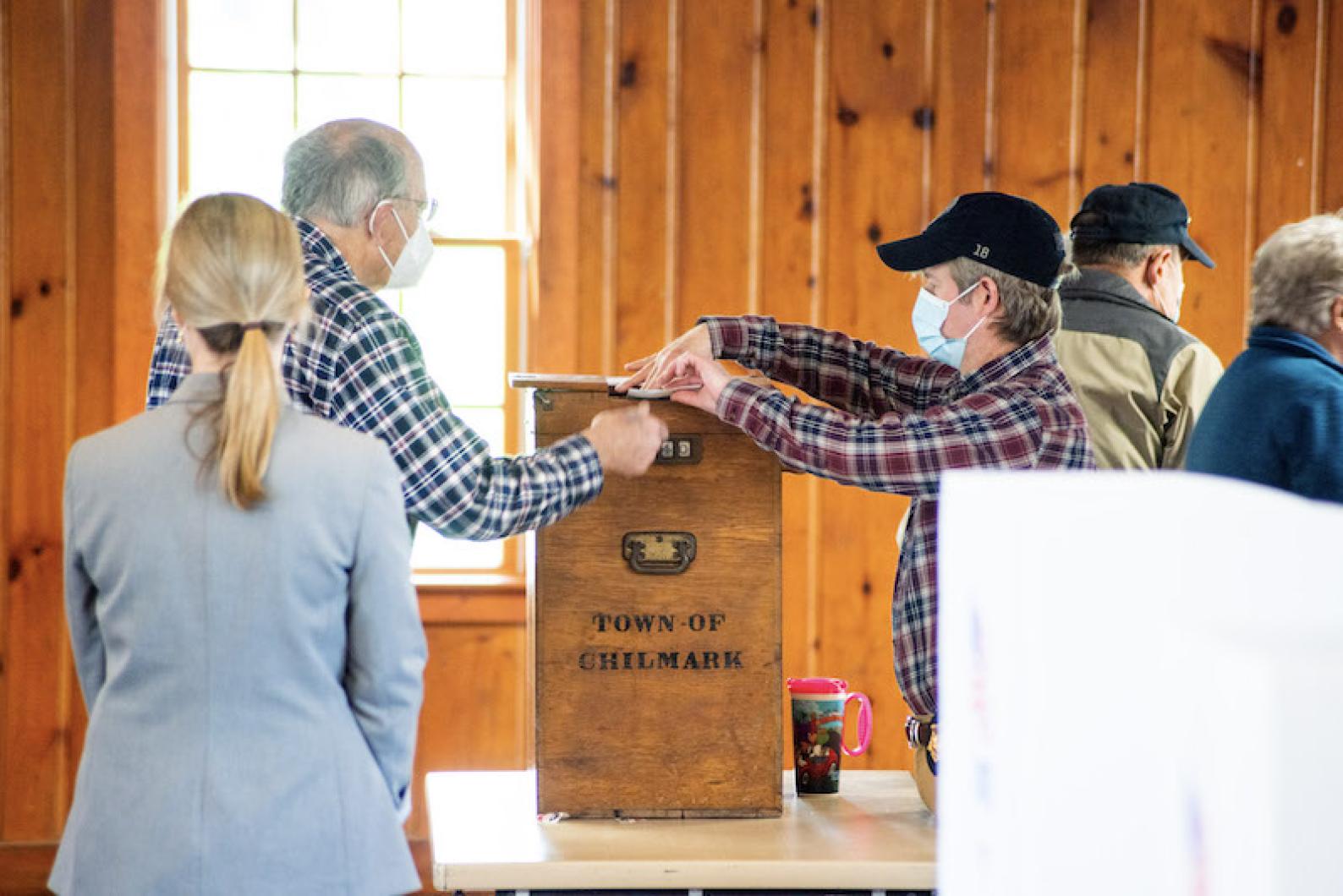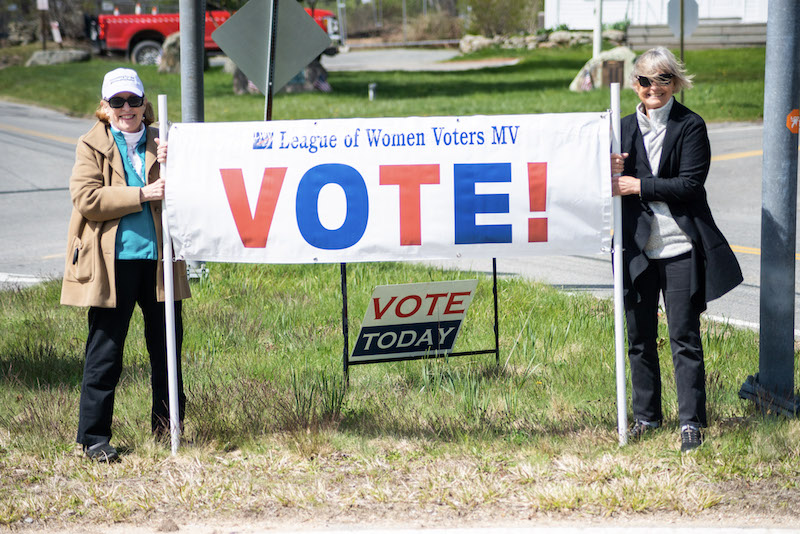After a late night of hand-counting votes, Chilmark became the fourth town to approve the Island-wide housing bank at the ballot box Wednesday, paving the way for the home rule petition to move on to the state legislature.
The article had already been approved by five towns at town meeting, including Chilmark on Monday night, but still needed a fourth win at the ballot box. Chilmark voters responded by saying yes by a large margin, 257-69, joining voters in Edgartown, Oak Bluffs and West Tisbury. Aquinnah holds its town meeting on May 10 and its election on May 12, and Tisbury holds its election May 24.
Laura Silber, coordinator for the coalition to create the MV Housing Bank, said she was gratified by the vote.
“I was at the Chilmark town meeting to answer questions and it was a really robust discussion and a lot of people turned out to support this,” Ms. Silber said. “And I’m really grateful that the percentages at the polls in Chilmark reflected the same level of support.”
The housing bank bill aims to address the lack of affordable housing on the Island by imposing a two per cent transfer fee, paid by the buyers, on most real estate sales over $1 million. The bank would have authority to buy and sell real estate, grant loans, take on debt and issue bonds. Similar bills have been presented in numerous towns around the commonwealth, including Nantucket, presenting a multi-faceted puzzle to be taken up now by state legislature.
Speaking to the Gazette by phone, Ms. Silber and state Sen. Julian Cyr outlined the possible next steps the housing bank could take.
Ms. Silber said a housing bank review committee will be created after the Aquinnah and Tisbury elections. The committee will be made up of a select board appointee from each town and have the ability to smooth out elements of the proposed legislation so long as the article that voters approved is generally left intact.
“That process could take a month or it could take six months,” Ms. Silber said.
Mr. Cyr said he is optimistic that a transfer fee will ultimately be approved, but said it is a matter of timing. One bill pending in the legislature would create a blanket local option for any municipality to impose a transfer fee for affordable housing. Nine other towns, some seasonal communities like the Vineyard and others in more urban areas, have specifically asked the state legislature to create a transfer fee, he said.
The overwhelming support for the transfer fee among such a diverse group of towns is impossible for the legislature to ignore, Mr. Cyr said. The complicating factor, he said, is Gov. Charlie Baker, whose position on the issue is unknown.
“I do feel well positioned to get a transfer fee local option done, if not this session, then in the next session with the new administration,” Mr. Cyr said.
With Gov. Baker’s term set to end this fall and with the two Democratic candidates — Maura Healey and Sonia Chang-Diaz — both supportive of the transfer fee, the senator said it may make more sense to wait for a changing of the guard.
The other piece of the puzzle involves setting up a local structure for the housing bank. Mr. Cyr said this step is more straightforward and could likely get done before next session, but that a housing bank without a transfer fee is essentially meaningless.
Which direction the housing bank takes — setting up its structure without the transfer fee or doing both at the same time — depends on what Islanders want to do, he said.
“Rep. [Dylan] Fernandes and I will work closely with the housing bank coalition and each of the six towns to determine what is the best legislative path forward to realize a housing bank for Martha’s Vineyard,” he said.
Ms. Silber said the different paths forward make it unclear when the housing bank might make it back to the Island for a final adoption vote.
“There are a lot of factors at play, most of it has to do with timing,” she said. “There will be some strategic choices to make and the Island community will be very well informed as those strategic choices are being made.”
Voters also said yes Wednesday to each ballot question and chose the two incumbents in the one contested race.
Susan Murphy and Eric Glasgow beat out challenger Robert Henry Rosenbaum to hold on to their seats on the financial advisory committee. Ms. Murphy received 234 voes, Mr. Glasgow 196 votes, and Mr. Rosenbaum 68.
Running unopposed, James Malkin held on to his seat on the select board with 250 votes.
Voters also approved a change in the town treasurer position from an elected to an apointed one by a margin of 248-52.
Both Proposition 2 ½ override debt exemption questions received overwhelming thumbs up. An upgrade to the Chilmark School HVAC system was approved 268-50, and the ongoing project to build a new firehouse and Tri-town EMS building passed 273-45.
In keeping with other Island towns, Chilmark voted yes by a margin of 293-21 to a nonbinding question asking the town to join a regional initiative calling for the decommissioned Pilgrim nuclear power plant to withdraw plans to dump radioactive waste into Cape Cod Bay.







Comments (6)
Comments
Comment policy »